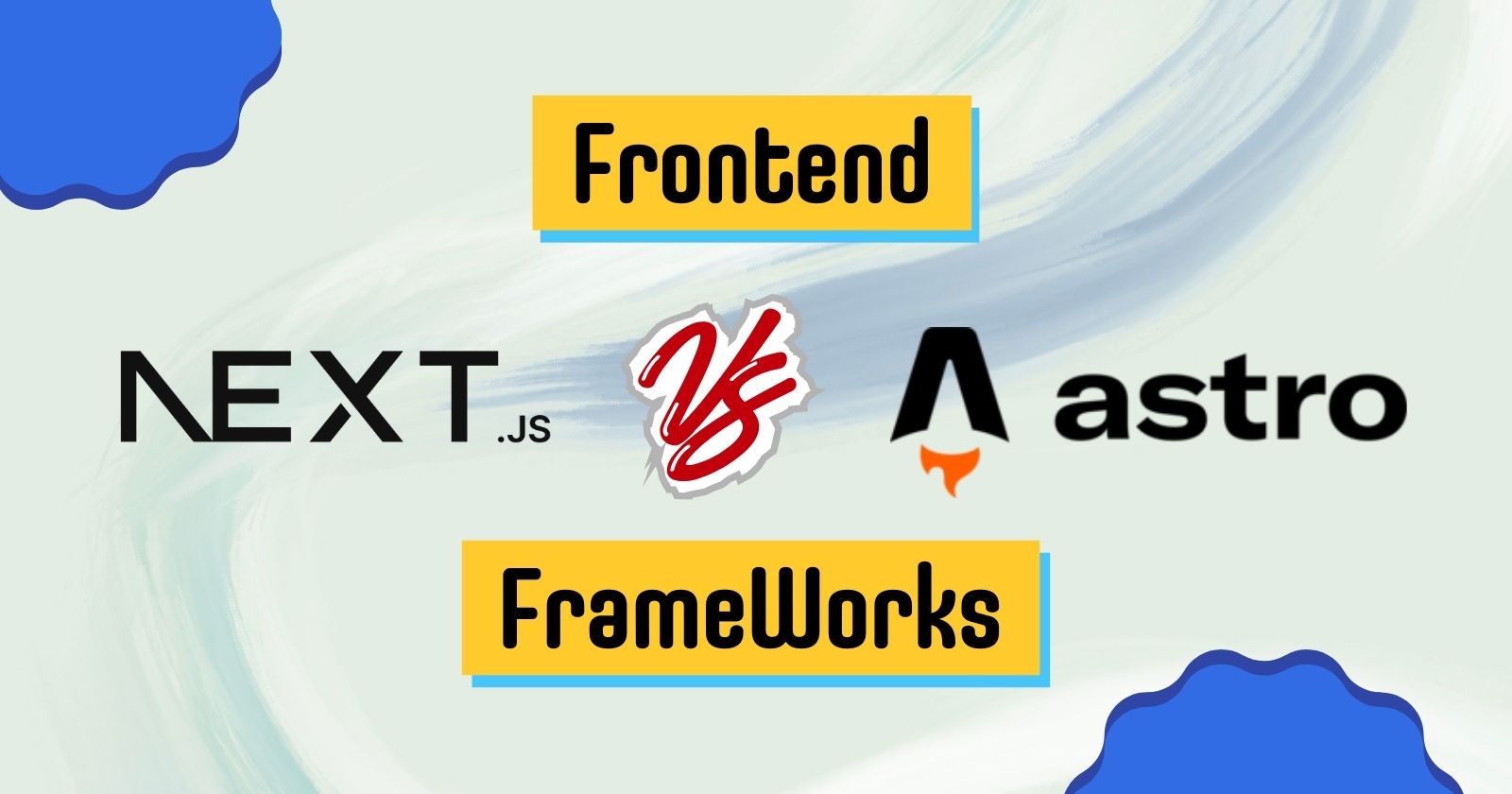Next.js vs. Astro: Choosing the Best Framework for Your Web Project
 Ritesh Kokam
Ritesh Kokam
In the dynamic world of web development, choosing the right framework can significantly impact the performance and scalability of your projects. Two popular contenders in the realm of modern web frameworks are Next.js and Astro. Let's explore their unique features, strengths, and potential use cases to help you make an informed decision.
Next.js: The React Powerhouse
Next.js, a React-based framework developed by Vercel, has been a game-changer for developers looking to build server-side rendered (SSR) applications and static websites. Its robust features, such as automatic code splitting, client-side routing, and API routes, provide a seamless development experience.
Key Features of Next.js:
Turbopack: This new bundler significantly improves local development performance, enhancing productivity for developers working on large projects.
Server Actions: Simplifies data mutations by allowing developers to run server code with simple function calls, integrated with caching and revalidation.
Partial Prerendering: Provides fast initial static responses combined with streaming dynamic content.
Advanced Routing & Nested Layouts: Supports more advanced routing patterns and UI layouts, making navigation straightforward and intuitive.
CSS Support: Enhanced support for CSS Modules, Tailwind CSS, and popular community libraries.
Middleware: Allows developers to take control of incoming requests, defining routing and access rules for authentication, experimentation, and internationalization.
Ideal Use Cases for Next.js:
E-commerce Sites: Dynamic content, product pages, and user interactions make Next.js a strong choice for e-commerce platforms.
News and Media Sites: With server-side rendering and static site generation, Next.js handles high traffic and dynamic content efficiently.
Dashboards and Admin Panels: Complex routing, API routes, and client-server data handling make it ideal for building intricate admin interfaces.
Full-Stack Applications: Integration with API routes and serverless functions simplifies the development of comprehensive web applications.
Astro: The Performance-Focused Framework
Astro, a modern static site generator, emphasizes performance and simplicity. It introduces a unique approach by allowing developers to build sites using multiple frameworks, including React, Vue, and Svelte, without the overhead of client-side JavaScript.
Key Features of Astro:
Islands Architecture: Enables partial hydration, where only the necessary parts of the page load JavaScript, drastically improving performance.
Multi-Framework Support: Developers can leverage their preferred framework, be it React, Vue, or Svelte, within a single project.
Zero JavaScript by Default: Generates static HTML by default, ensuring minimal JavaScript on the client side for lightning-fast load times.
Component-Level Hydration: Selectively hydrates components as needed, reducing the amount of JavaScript shipped to the client.
View Transitions: Supports animated page transitions and persistent islands, enhancing the user experience.
Image Services API: New features for using images in Astro, including a new
<Image />component andgetImage()function.
Ideal Use Cases for Astro:
Content-Heavy Websites: Blogs, documentation sites, and portfolios benefit from Astro's performance-first approach and minimal JavaScript.
Marketing Sites: Landing pages and promotional sites where fast load times and SEO are crucial.
Static Sites: Personal websites or any project where the content is mostly static and doesn't change frequently.
Hybrid Content Sites: Combining multiple frameworks in one project is useful for sites with varied content and interactive elements.
Comparative Table
| Feature | Next.js | Astro |
| Primary Use | SSR and SSG for dynamic apps | Static sites with minimal JS |
| Bundler | Turbopack | N/A |
| Server Actions | Yes | No |
| Partial Prerendering | Yes | No |
| Routing | Advanced routing and nested layouts | Basic routing |
| CSS Support | CSS Modules, Tailwind CSS | Framework agnostic |
| Middleware | Yes | No |
| Framework Integration | React | Multi-framework (React, Vue, Svelte, etc.) |
| Hydration | Client-side hydration | Component-level hydration |
| View Transitions | No | Yes |
| Image Services | Yes | Yes |
Conclusion
Both Next.js and Astro offer compelling features and advantages, making them excellent choices for modern web development. Next.js shines with its SSR capabilities and React integration, making it ideal for complex, dynamic applications. Astro, on the other hand, stands out with its innovative islands architecture and performance-first approach, making it perfect for static, content-heavy sites.
Ultimately, the right choice depends on your project's specific requirements and goals. Whether you prioritize performance, flexibility, or advanced features, both frameworks provide robust solutions for today's web development challenges.
Happy coding! 🚀
Subscribe to my newsletter
Read articles from Ritesh Kokam directly inside your inbox. Subscribe to the newsletter, and don't miss out.
Written by

Ritesh Kokam
Ritesh Kokam
Hi, I am Ritesh a Software Developer. I write blog on web development and basically all that I love 😎.